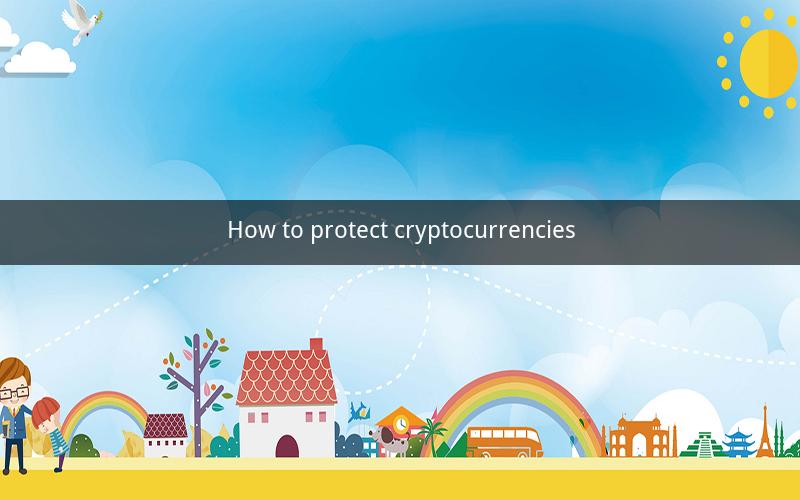
Table of Contents
1. Understanding Cryptocurrencies
2. The Importance of Protecting Cryptocurrencies
3. Best Practices for Storing Cryptocurrencies
4. Utilizing Wallets for Secure Storage
5. Cold Storage vs. Hot Storage
6. Implementing Multi-Factor Authentication
7. Keeping Your Private Keys Safe
8. Regularly Updating Security Software
9. Educating Yourself About Phishing and Scams
10. Engaging with the Community for Support
---
1. Understanding Cryptocurrencies
Cryptocurrencies are digital or virtual currencies that use cryptography for security. They operate independently of a central bank and are typically managed through a decentralized system known as a blockchain. This unique characteristic makes cryptocurrencies attractive for various reasons, such as privacy, security, and the ability to transact across borders without intermediaries.
2. The Importance of Protecting Cryptocurrencies
Given the inherent value and vulnerability of cryptocurrencies, protecting them is crucial. The loss of your cryptocurrency can result in financial hardship, as these assets are not insured or backed by any government entity. Therefore, understanding how to protect your cryptocurrencies is essential for maintaining your wealth and security.
3. Best Practices for Storing Cryptocurrencies
To protect your cryptocurrencies, it is essential to adopt best practices for storing them. These practices include:
- Using secure wallets: Choose a reputable wallet that offers strong security features, such as encryption and two-factor authentication.
- Backup your wallet: Regularly backup your wallet to prevent data loss in case of hardware failure or theft.
- Keep your private keys safe: Your private keys are the keys to your cryptocurrency, so it is crucial to keep them confidential and secure.
4. Utilizing Wallets for Secure Storage
There are several types of wallets available for storing cryptocurrencies, each with its own level of security and convenience:
- Mobile wallets: These wallets are accessible through your smartphone and are convenient for day-to-day transactions. However, they may be less secure than other types of wallets.
- Desktop wallets: These wallets are installed on your computer and offer more security than mobile wallets. However, they are less convenient for on-the-go transactions.
- Hardware wallets: These wallets store your cryptocurrencies offline, making them highly secure against online threats. They are the most secure option for long-term storage.
5. Cold Storage vs. Hot Storage
Cold storage refers to storing cryptocurrencies offline, while hot storage refers to storing them online. Cold storage is generally considered more secure, as it reduces the risk of online attacks. However, it may be less convenient for day-to-day transactions. Hot storage, on the other hand, is more convenient but carries a higher risk of being hacked.
6. Implementing Multi-Factor Authentication
Multi-factor authentication (MFA) adds an extra layer of security to your cryptocurrency accounts. MFA requires you to provide two or more forms of identification, such as a password and a unique code sent to your phone, to access your account. This makes it much harder for unauthorized users to gain access to your assets.
7. Keeping Your Private Keys Safe
Your private keys are the keys to your cryptocurrency, so it is crucial to keep them safe. Here are some tips for keeping your private keys secure:
- Do not share your private keys: Never share your private keys with anyone, as they can be used to access your cryptocurrencies.
- Use a secure password: Choose a strong, unique password for your wallet and change it regularly.
- Backup your private keys: Store your private keys in a safe, secure location, such as a safe deposit box or a secure cloud storage service.
8. Regularly Updating Security Software
Keep your computer and mobile devices protected by regularly updating your security software. This includes antivirus, anti-malware, and firewall programs. These updates will help protect you from the latest threats and vulnerabilities.
9. Educating Yourself About Phishing and Scams
Be aware of phishing and scams targeting cryptocurrency users. These scams often involve fraudulent websites, emails, and messages designed to steal your private keys and other sensitive information. Stay informed about the latest scams and be cautious when sharing your personal information online.
10. Engaging with the Community for Support
Join cryptocurrency forums and communities to stay informed about the latest developments and security tips. Engaging with the community can help you learn from others' experiences and find support when you encounter problems.
---
Questions and Answers
1. What is a cryptocurrency?
A cryptocurrency is a digital or virtual currency that uses cryptography for security and operates independently of a central bank.
2. Why is it important to protect cryptocurrencies?
Protecting cryptocurrencies is crucial to prevent financial loss and maintain your wealth and security.
3. What are the best practices for storing cryptocurrencies?
Best practices include using secure wallets, backing up your wallet, keeping your private keys safe, and implementing multi-factor authentication.
4. What are the different types of wallets available for storing cryptocurrencies?
There are mobile wallets, desktop wallets, and hardware wallets, each with its own level of security and convenience.
5. What is the difference between cold storage and hot storage?
Cold storage refers to storing cryptocurrencies offline, while hot storage refers to storing them online. Cold storage is generally considered more secure but less convenient for day-to-day transactions.
6. How can I keep my private keys safe?
Keep your private keys confidential and secure, use a strong password, and backup your private keys in a safe location.
7. What is multi-factor authentication (MFA)?
MFA adds an extra layer of security by requiring two or more forms of identification to access your cryptocurrency accounts.
8. How can I protect myself from phishing and scams?
Stay informed about the latest scams, be cautious when sharing personal information online, and engage with the cryptocurrency community for support.
9. Why is it important to update security software regularly?
Regular updates will help protect you from the latest threats and vulnerabilities.
10. How can I stay informed about the latest developments in the cryptocurrency world?
Join cryptocurrency forums and communities to stay informed about the latest developments and security tips.